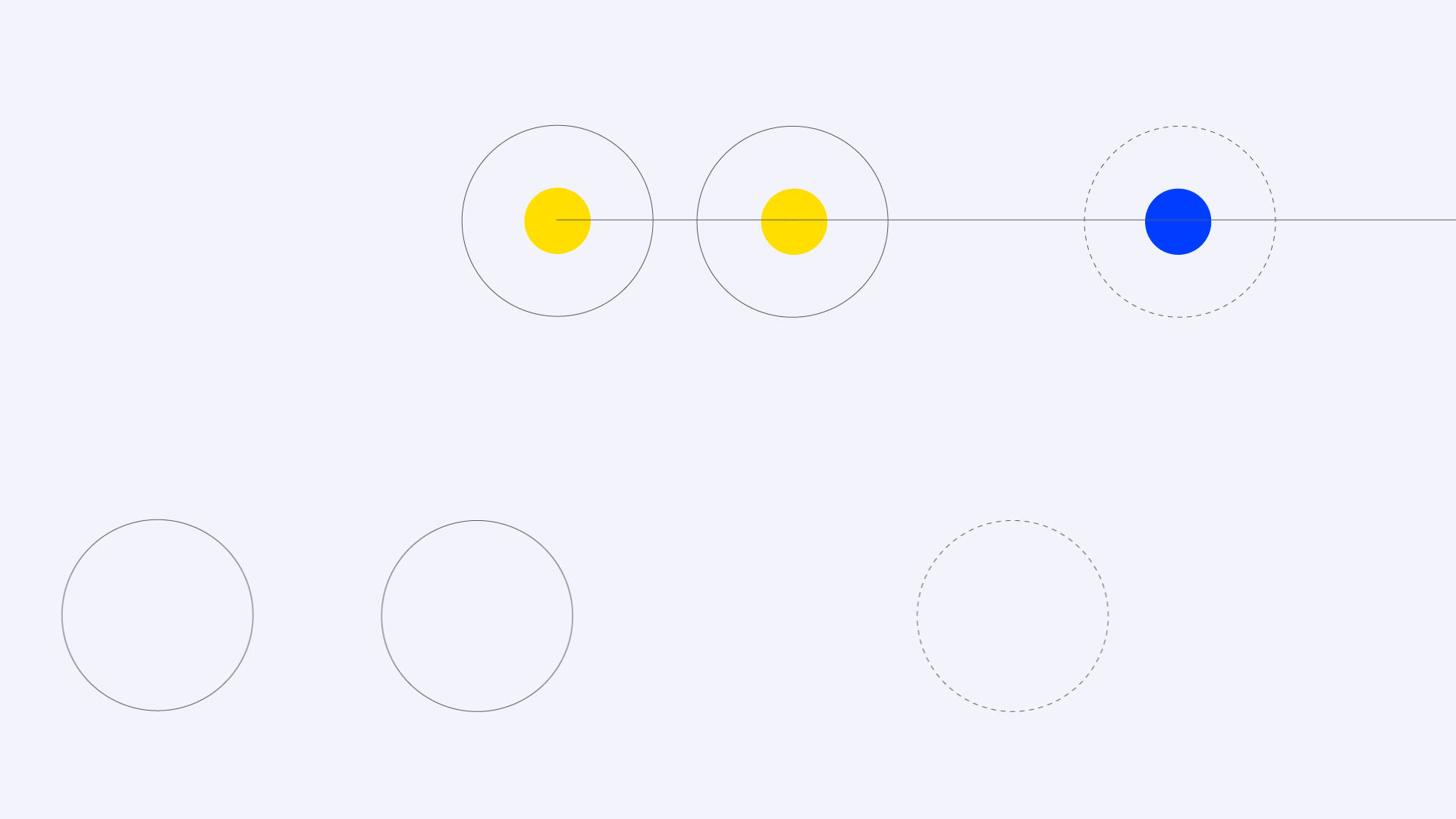
At RBC Borealis, a large team of approximately 40 researchers — with backgrounds in computer vision, machine learning, natural language processing, and with PhDs in computer science, physics, computational finance, mathematics and more — conduct research in artificial intelligence for financial services. Together, the team has published over 50 papers in NeurIPS, ICLR, ICML, ACL, CVPR and other conferences and journals.
The team’s commitment to creating real-world impact through scientific pursuit led to RBC Borealis establishing a set of challenging North Star research problems: Asynchronous Temporal Models, Non-Cooperative Learning in Competing Markets, and Causal Machine Learning from Observational Data.
Machine Learning for a better financial future
With Asynchronous Temporal Models (ATOM), RBC Borealis researchers aim to build machine learning models capable of making inferences from asynchronous event sequences. Asynchronous event sequences are ubiquitous in personal banking applications – from various types of transaction data to client interactions with our banking services.
"At RBC Borealis, we've worked on products across many different aspects of the bank, and our research aims to provide the long-term capabilities that will help us be successful in those different areas. For this reason, we carved out what are called North Star directions that help to focus our research effort, so that in the long term we develop the capabilities that we need to build cutting-edge AI products. One of our research directions is really focused on asynchronous data. We call this North Star direction ATOM."

Greg Mori
VP, RBC Fellow, RBC Borealis
"ATOM stands for asynchronous temporal models: neural networks that can make inferences on sequences of discrete events in time. An example of an asynchronous event sequence is a client's credit card transactions. A client might make a transaction today, no transactions for several days afterwards, and then several transactions on the same day. These are events that are non-uniformly spaced in time, yet follow underlying patterns that we want our neural networks to be able to learn,"

Fred Tung
Machine Learning Research Team Lead, RBC Borealis
“This novel research agenda aims to support Borealis products in personal banking and risk management, as well as have a scientific impact. This opens the door for our researchers to build technologies that leverage data from multiple channels, but it also syncs seamlessly with clients that use only a subset of these channels in a manner that respects privacy and upholds principles of Responsible AI. For example, Borealis technology currently powers an account cashflow feature in the RBC mobile app, and better asynchronous temporal models can help us make more accurate predictions, recognize when we are uncertain, and in the end, deliver a better user experience.”
One of the recently published papers, Meta Temporal Point Processes (ICLR 2023), focuses on a temporal point process (TPP), a stochastic process where its realization is a sequence of discrete events in time. In this paper, the researchers propose to train TPPs in a meta learning framework, where each sequence is treated as a different task, via a novel framing of TPPs as neural processes (NPs) and introduce context sets to model TPPs as an instantiation of NPs. Motivated by attentive NP, the researchers also introduce local history matching to help learn more informative features and demonstrate the potential of the proposed method on popular public benchmark datasets and tasks, and compare with state-of-the-art TPP methods.
The research team’s work is integral to the projects RBC Borealis undertakes in the personal banking space and sits at the core of RBC’s overall innovation strategy. More information about the other North Star research streams integral to RBC Borealis’s work can be found here. To learn more about ATOM, visit the new ATOM section.
Select ATOM publications
-
Ranking Regularization for Critical Rare Classes: Minimizing False Positives at a High True Positive Rate
Ranking Regularization for Critical Rare Classes: Minimizing False Positives at a High True Positive Rate
*M. Kiarash, H. Zhao, M. Zhai, and F. Tung. The IEEE / CVF Computer Vision and Pattern Recognition Conference (CVPR), 2023
-
Meta Temporal Point Processes
Meta Temporal Point Processes
W. Bae, M. O. Ahmed, F. Tung, and G. Oliveira. International Conference on Learning Representations (ICLR), 2023
-
RankSim: Ranking Similarity Regularization for Deep Imbalanced Regression
RankSim: Ranking Similarity Regularization for Deep Imbalanced Regression
Y. Gong, G. Mori, and F. Tung. International Conference on Machine Learning (ICML), 2022
-
Self-Supervised Time Series Representation Learning with Temporal-Instance Similarity Distillation
Self-Supervised Time Series Representation Learning with Temporal-Instance Similarity Distillation
A. Hajimoradlou, L. Pishdad, F. Tung, and M. Karpusha. Workshop at International Conference on Machine Learning (ICML), 2022
-
Gumbel-Softmax Selective Networks
Gumbel-Softmax Selective Networks
M. Salem, M. O. Ahmed, F. Tung, and G. Oliveira. Workshop at Conference on Neural Information Processing Systems (NeurIPS), 2022
-
Training a Vision Transformer from scratch in less than 24 hours with 1 GPU
Training a Vision Transformer from scratch in less than 24 hours with 1 GPU
S. Irandoust, T. Durand, Y. Rakhmangulova, W. Zi, and H. Hajimirsadeghi. Workshop at Conference on Neural Information Processing Systems (NeurIPS), 2022
Work with Us!
RBC Borealis is looking to hire for various roles across different teams, including opportunities to work on ATOM, such as Senior Machine Learning Researcher. Visit our career page to find the right role for you and join our team!
Careers at RBC Borealis